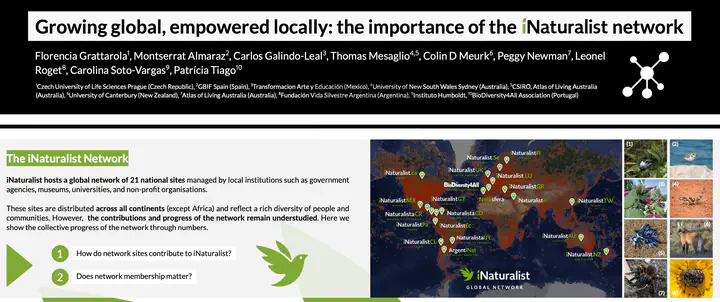
iNaturalist hosts a global network of 21 national sites managed by local institutions such as government agencies, museums, universities, and non-profit organisations. These sites are distributed across all continents and reflect a rich diversity of people and communities. Nine are in Latin America (Mexico launched the first in 2013), and only four use English as their main language. The sites not only manage platforms, but also lead outreach, education, and curation efforts tailored to their cultural and ecological contexts. Although iNaturalist continues to grow globally, the contributions and progress of its local site network remain understudied. Here we show the collective progress of the network through numbers and reveal that countries with a local iNaturalist site differ from the global average. Specifically, we tested several explanatory variables (area, population, and GDP per capita) and found that the presence of a national iNaturalist hub was a highly significant positive factor in all three models: total number of iNaturalist records, number of records from iNaturalist in GBIF, and number of active users. Since users often engage beyond national borders, e.g., through identifications, taxon curation, and travel, our results suggest that the efforts of the network have contributed significantly to iNaturalist’s global success beyond the United States. Our findings also highlight the value of localised strategies within global citizen science platforms.